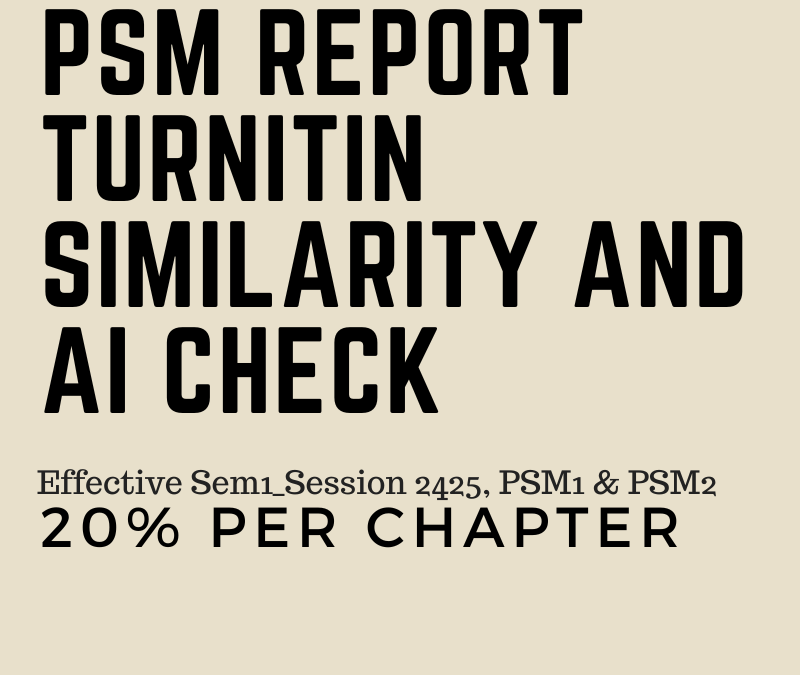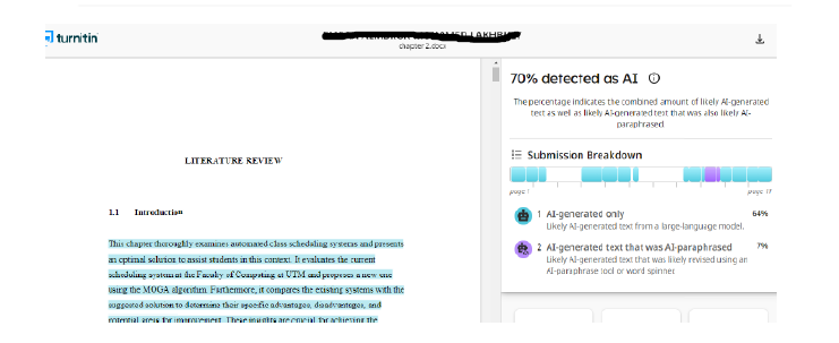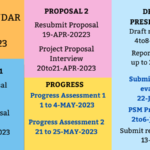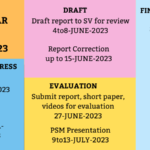Plagiarism and AI: Upholding Integrity in Academia and Final Year Projects
In today’s fast-paced academic environment, integrity remains a cornerstone of educational success. With the advancement of technology, including AI-driven tools, students now have greater access to resources and support than ever before. While these advancements have improved learning experiences and research capabilities, they also present new challenges in maintaining academic honesty, particularly when it comes to plagiarism.
The Importance of Academic Integrity
Academic integrity is more than just avoiding plagiarism; it’s about fostering trust, credibility, and genuine intellectual growth. For final year students, integrity takes on even greater importance. Final year projects are not just another assignment—they are the culmination of years of learning, research, and hard work. They demonstrate a student’s ability to think critically, apply their knowledge, and contribute meaningfully to their field.
Plagiarism undermines these efforts. When students present work that is not their own, they devalue the entire academic process. This is why institutions take plagiarism seriously, implementing strict policies to ensure that students produce original work. In the age of AI, these policies are evolving to include guidelines that govern the use of AI-generated content in academic submissions.
SEM12425: New Guidelines for AI and Similarity
As we step into the future, it’s essential that academic institutions adapt to technological trends, including the growing use of AI in research and writing. In response to these changes, beginning with SEM12425 new guidelines are introduced to ensure that both AI-generated content and similarity percentages are kept in check. Starting from this semester, Turnitin usage will be compulsory for all final year projects. The goal is to create a fair playing field where students can utilize technology responsibly while still demonstrating their own unique capabilities.
Under these new guidelines:
– Similarity percentage through Turnitin must be 20% MAX per chapter.
This ensures that students are engaging with source material but presenting it in their own words.
– AI-generated content is also limited to 20% MAX per chapter. This will be measured on two different elements, which are “AI-generated only” and “AI-generated text that was AI-paraphrased”.
Each will carry the 20% MAX value per chapter. While AI tools can assist in research and writing, they should not replace a student’s original work. This ensures that the project reflects the student’s individual creativity, critical thinking, and understanding of the subject matter.
Why the Limits Matter
These limits serve as a safeguard against over-reliance on external sources and AI. While AI tools like ChatGPT or Grammarly can help with grammar, structure, and even research ideas, relying on them too heavily risks diluting the originality of your work. Final year projects are meant to showcase your abilities, not the abilities of an algorithm.
Moreover, high similarity percentages indicate that a student might be too dependent on the words and ideas of others, rather than developing their own thoughts. These projects are meant to challenge students to synthesize information, analyze data, and come up with unique solutions.
Turnitin as a Tool for Learning
Turnitin is not just a policing tool; it’s also a learning tool. By using it throughout the writing process, students can identify areas where they may be unintentionally relying too much on source material or AI-generated text. This allows for self-correction and learning, ultimately improving the quality of their final submission.
Upholding Your Academic Reputation
In the end, the guidelines introduced serve to protect both the institution and the students. By adhering to these policies, students ensure that their final year projects are a true reflection of their academic journey. As you work towards completing your final project, remember that your work is a representation of your integrity, capabilities, and commitment to excellence.
Let’s embrace technology responsibly and uphold the principles of academic honesty. By doing so, we not only succeed in our current studies but also prepare ourselves for future success in the professional world.









